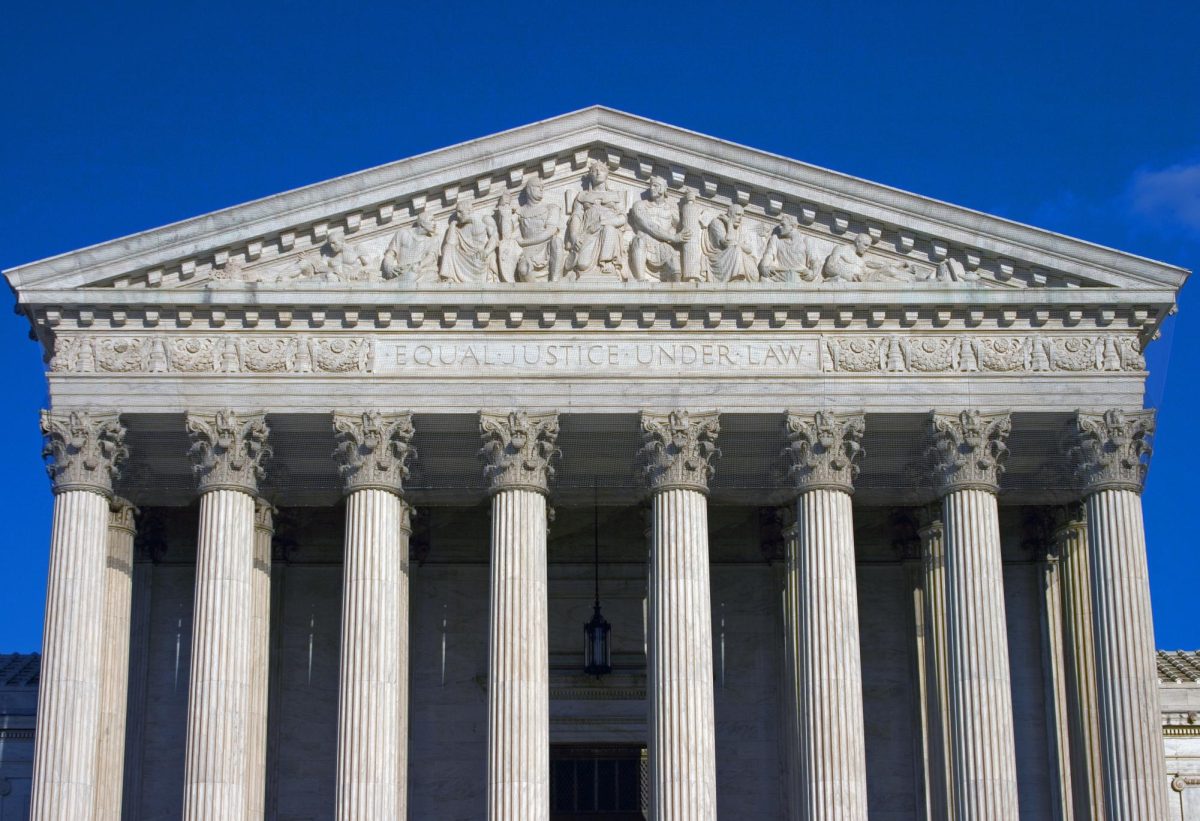The Bucknell Institute for Public Policy (BIPP) sponsored Previewing the Supreme Court’s Next Term on Oct. 26, featuring Bucknell Professor of Political Science Scott Meinke and Susquehanna University Assistant Professor of Political Science Alison Merril.
Professor Merril spoke first at the talk and started by discussing the current conservative super majority on the Court and the impacts of this. In 2021, the Court saw record low levels of unanimity in decision-making. In 2022, however, the court began to try and forge agreements, even though the Court is many times, as Professor Alison Merril described, a “Pit of Vipers.”
Merril also spoke in detail about the newest member of the Supreme Court, Ketanji Brown Jackson, and how she has spoken more during oral arguments than any other Justice in the last thirty years. Justice Jackson also votes with the majority of the court 84 percent of the time, which Merril says shows her trying to make strides to have more unanimity across the court. Merril also highlighted the differences between Justice Jackson and another woman currently on the Court, Justice Amy Coney Barrett. Justice Barrett is more unpredictable and keeps to herself more on the court. This differs from Justice Jackson, and Merril argues this could be because Justice Barrett is the only Justice on the court to not have attended an Ivy League law school.
Following Merril’s section, Professor of Political Science Scott Meinke gave a talk that covered the old and new business of the Supreme Court. In 2023, the Court had two controversial decisions surrounding abortion and gun rights. These two cases were considered old business because the Court has many times been confronted with cases surrounding abortion and gun rights. Meinke pointed out an interesting historical argument that the court has been using for gun cases: gun regulation is only constitutional if the state can find some historical evidence that a similar law or act was implemented before in American history. This can become a gray area for the lower courts and has resulted in new gun cases, which the Court will hear in the near future.
The new business of the Supreme Court are upcoming cases regarding free speech with social media companies and politicians. These will determine whether private corporations have the right to ban certain speech or people from their platform and whether or not politicians can ban people on social media who are criticizing them. The Court will also be hearing cases surrounding government power and regulation through agencies. Meinke pointed out that although not the most interesting cases, they will set very important precedents on the power and funding the government agencies will receive.
BIPP supports social science research and sponsors discussions surrounding public policy for faculty and students. Some of the topics covered by the institute include the economy, domestic and international politics, education, health, the environment, civil society and many more. Professor of Political Science Chris Ellis and Associate Professor of Political Science John Doces head the institute. Their events provide not only free food but opportunities for students, staff and faculty to stay informed about American public policy. BIPP has many more events this semester. Visit their website to get future dates on events and speakers.






















